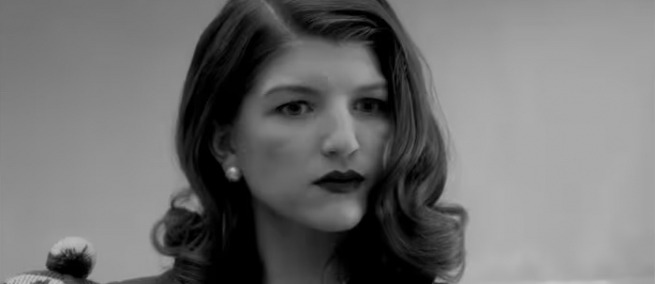
Earlier this year, the Science and Technology Organization (STO) within the North Atlantic Treaty Organization (NATO) launched a challenge to inspire young women to pursue careers in science, technology, engineering, and mathematics (STEM), joining the ranks of private and public organizations working to achieve gender equity in the sciences. While efforts like these are moving the needle, according to research conducted by the American Association of University Women (AAUW), women currently make up just 34% of the STEM workforce. The AAUW cites math anxiety, gender stereotypes, male dominated cultures, and fewer role models as the key factors which perpetuate this gender gap. Reports like this underscore the vital importance of pioneering women scientists who pursued their passion decades or centuries before their endeavors were encouraged by society. In the interest of lauding such role models, Science & Film recommends the following Sloan-supported projects, each of which tells the story of a historic woman scientist born in July.
SHORT FILMS CURRENTLY AVAILABLE TO STREAM
Eunice Newton Foote – Born July 17, 1819
HOT AIR. Dir. Urvashi Pathania. It was 1856 when Eunice Newton Foote made a monumental discovery in climate science. Today, we all know her work, but not her name. This is her story.
Vera Rubin – Born July 23, 1928
INTO THE VOID. Dir. Yossera Bouchtia. Budding astronomer, wife, and young mother Vera Rubin prepares to present her new, groundbreaking research to the American Astronomical Society and discovers a prejudice that runs much deeper than she thought–one that forces her to reassess her own livelihood and weigh her dreams against society’s expectations for women, in this biopic drama set in 1950s New York.
SERIES PILOTS IN DEVELOPMENT
Henrietta Swan Leavitt - Born July 4, 1868
DEAR MISS LEAVITT by Jessica Gonzalez
It’s 1908, and most of the scientific community thinks the universe stops at the edge of the Milky Way. But Henrietta Leavitt, a computer at the Harvard Observatory, believes that the only reason the universe seems so small is because they have no way to measure it. DEAR MISS LEAVITT follows Henrietta as she sets out to find an accurate way to measure the distance between Earth and faraway stars, laying the foundation for legendary astronomers like Edwin Hubble to make discoveries that prove the universe is bigger than anyone imagined and change astronomy forever—all at a time when women weren’t even allowed to operate a telescope.
Rosalind Franklin – Born July 25, 1920
OUR DARK LADY by Kathryn Lo
After James Watson trashes the reputation of scientist Rosalind Franklin in his 1968 memoir on the discovery of DNA’s double helix, a friend seeks to restore her name by investigating what happened at two labs in 1950s England — where Rosalind’s story emerges.
FILMMAKERS
TOPICS